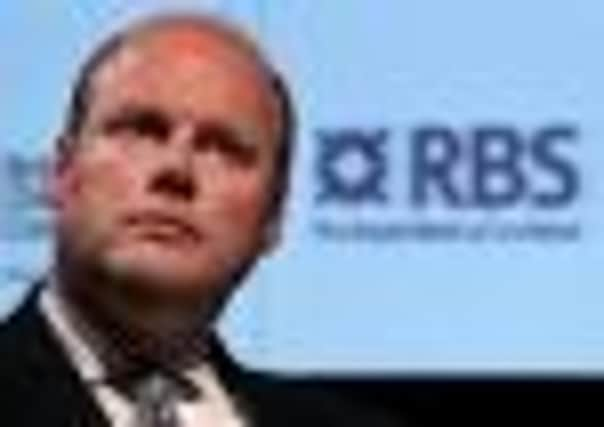George Kerevan: Stephen Hester bonus protest political, not economic


Back when I was an economics student at Glasgow University, we were taught that wage rewards should reflect the marginal product added by the worker concerned. Does this test apply in Hester’s case?
Academic research tends to support the view that individual CEOs have a major impact on company turnarounds.
Advertisement
Hide AdAdvertisement
Hide AdUnpalatable as it might be, it is usually the case in big corporate makeovers that the new CEO is paid a tiny fraction of the value created or saved, even if the absolute remuneration seems humungous to ordinary mortals.
So has Hester turned RBS around? We are barely half way through his five-year restructuring plan but City opinion is pretty unanimous that Hester has done a good job so far.
He has shed 30,000 jobs yet maintained company morale. He has massively reduced risk by cutting dependence on wholesale financing and boosting capital reserves. Above all, profitability has been restored in the core operating sectors. Hester has done this despite having the entire British media and political class breathing down his neck. Which explains why analysts are recommending RBS equity owners to hold, despite the fragility of the European banking system.
That said, RBS shares plummeted over the past year and results for the first half of 2011 were poor. Hester might have deserved his £2 million bonus in 2010, but why reward him for the past 12 months? The truth is financial stocks are down universally as a result of the euro crisis. The Stoxx Europe 600 Banks Index plunged 33 per cent in 2011. Hester can be criticised for over-caution – he wrote down RBS exposure to Greek debt faster than other banks, one reason profits were squeezed. But if Greece defaults in March, Hester will be a hero.
More than most, RBS shares are vulnerable because of the constant political attacks made on Hester. Yet RBS is a plc, even if it is 82 per cent state owned. The directors have a legal responsibility to all shareholders, not just the state, and to the bank’s stakeholders, including depositors and employees. Blocking Hester’s bonus might well have precipitated his resignation and no responsible board of directors could countenance that.
But RBS is not out of the woods yet. John Hourican, head of the investment arm and last of Sir Fred Goodwin’s senior team still at the bank, is in line for a bonus in April that could top £4m. This is under the old incentive plan linked to the disastrous acquisition of ABN Amro. Clearly, the marginal product of that deal was less than zero. It’s hard to find an economic – as opposed to contractual – justification for such an inflated figure.
US debt reduction is reason for growth
GOOD news from America. The US economy grew at an annualised 2.8 per cent in the fourth quarter of 2011, on the back of company stock rebuilding and increased consumer activity driven by pent-up demand for new cars.
While the threatened downturn in Europe will hurt American exports, most commentators believe US growth should stay positive throughout 2012, especially given the Federal Reserve’s announcement this week that interest rates will remain on hold till 2014.
Advertisement
Hide AdAdvertisement
Hide AdThe euro aside, why is the States doing better than Europe? American consumers have reduced their debt burden faster than Europeans, particularly through mortgage defaults. This private de-leveraging has created space for looser public spending than in austerity-driven Europe. After three years of belt-tightening, ordinary Americans now feel in a position to start consuming gain.
In Europe, by contrast, private debt levels remain high which, together with tax increases, puts a damper on retail sales.
The big unknown is the outcome of November’s US presidential election. Newt Gingrich has moved ahead in the race for the Republican nomination after saying he wants a permanent US base on the moon within eight years and to make it the 51st state. Gingrich gives a new meaning to “rocket stocks”.